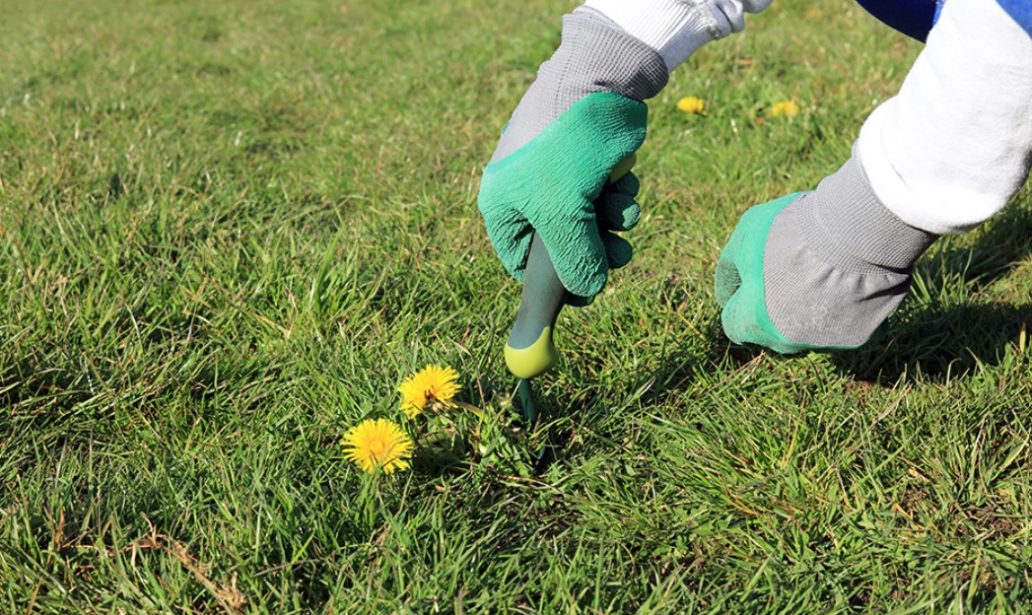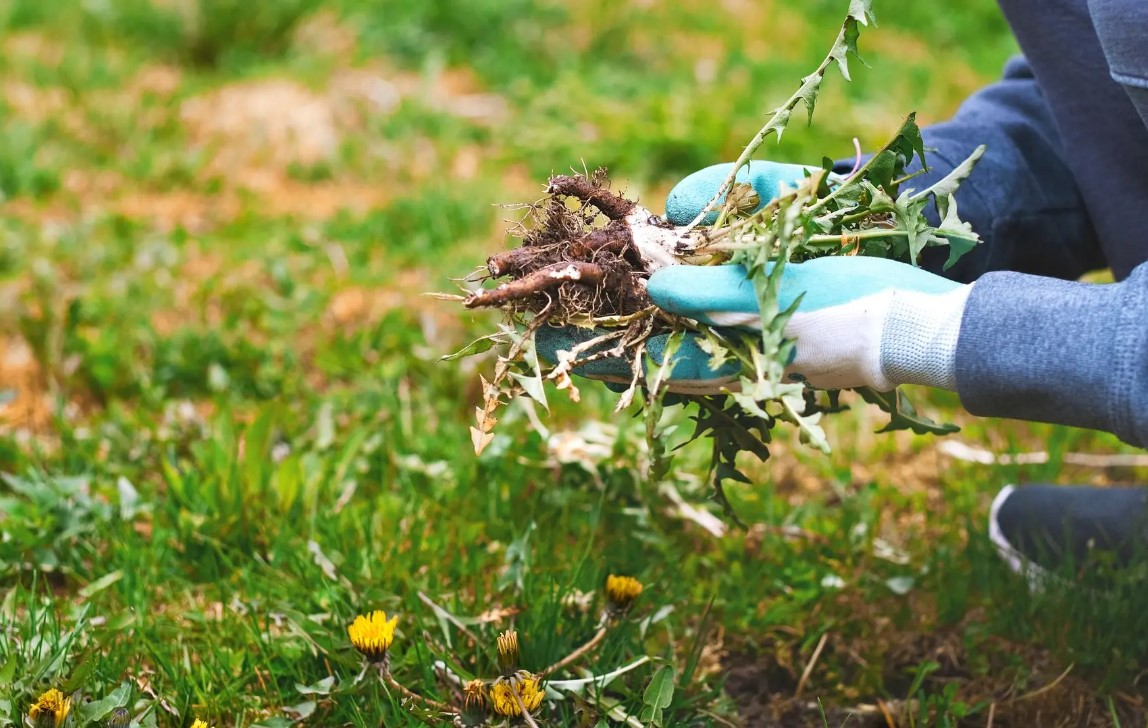Will Diesel Kill Weeds And Grass?
Many people take great interest in their gardens and yards, and they are always looking for new methods to eradicate unsightly grass and weeds. The presence of weeds might be a problem every year. In preparation for planting a garden in my new house, I wanted to do some research on the most effective methods for preparing the soil by removing the grass and weeds that were present in that area. I was aware that diesel fuel is highly recommended.
Would diesel be able to destroy grass and weeds? Diesel gasoline is harmful to all plant material and will destroy any weeds or grass that it comes into touch with, in addition to any other plants that it comes into contact with. Since diesel will not be able to destroy the seeds, this remedy is not considered to be permanent. You are going to have to carry out this procedure in a constant manner. In light of this, you may want to think about using alternate ways that are not hazardous and more successful to eradicate your grass and weeds.
You may take care of your region with a straightforward and straightforward technique that uses diesel fuel, and other solutions are non-toxic than diesel fuel. There are many different recipes that you may make at home to treat your undesired region. There are many different alternatives to take into consideration, and to avoid destroying your whole yard, you need to be certain of what it is that you want to kill.
The Use of Diesel to Reduce the Number of Weeds and Grass
What Else You Will Require
- Gasoline jug
- Spray bottle (for thick liquid with direct spray nozzle)
- Funnel
- Shovel
A Preparation for Spraying
Gasoline containers should be filled with one to two gallons of diesel fuel at the gas station in your neighborhood. To transfer the diesel into the spray bottle, you need to make use of a funnel. To avoid spilling the diesel and killing plants that you want to retain, you should try to do this task in your garage or tool shed.
Applying Diesel Spray
Be careful to spray the diesel fuel straight into the roots of the grass, and also make sure to spray directly on the weeds and grass that you do not want. It does not take much, and each plant that escapes will be responsible for the death of other plants in the vicinity. Spray the grass and the roots until they are saturated; there is no need to spray until they are soaking wet.
Caution: Diesel Fuel
Applying diesel to your yard to eradicate weeds and grass may be detrimental to both your yard and the environment. Especially considering that diesel is a fire threat, it is important to spray the area early in the morning when there is no risk of rain or wind for at least 48 hours. After you have finished spraying, transfer the diesel to the gasoline jug and keep it in a cool, dry location where it cannot spill. Do not store the diesel in the spray bottle. If you want to avoid using your spray bottle for anything else, you should make sure you identify it.
We strongly advise against using gasoline if you have well water since it has the potential to seep into the ground and end up in your water supply.
Furthermore, vapors resulting from poisonous fumes have the potential to create issues; hence, some individuals even propose wearing a mask and gloves while working with diesel. Following the application of diesel, it is important to keep children and animals away from the area.
Eliminating Grass and Weeds That Have Died
Remove the dead grass and weeds using a shovel, along with one inch of soil underneath them, after they have reached the point of death. At least for one season, this will prevent any further development in that region. Be sure to remove at least the top four inches of soil from any undesirable area that you may have soiled with diesel before you plant again in that place. Because diesel is harmful to all plant material, the plant will cease to grow in that region for at least one season.
Concerning Questions Related to
How to Put an End to the Seeds
- There are various ways available to prevent the seeds of weeds that are buried from coming back.
- Start by removing any conspicuous weeds, then cover the area with cardboard or newspaper, and then cover it with mulch that is one inch deep. One year will be required to complete this task, which will include insulating the earth to destroy the seeds.
- Placing transparent plastic that has been stretched tightly over the area that has been precisely prepared for the whole summer will eliminate the seeds of the weeds. Therefore, this phenomenon is known as soil solarization.
- Using propane as its source of electricity, a flame weeder is a portable garden torch. Use on a day that is hot and dry, as recommended. First, flame the tops of the plants, and then move the flame up and along the sides of the plants. You will be able to get rid of the weeds, which will eliminate the seeds and prevent them from coming back the following year.
- Michael Walsh, a scientist who studies weeds, asserts that “narrow windrow burning is inexpensive, simple to use, and if it is implemented correctly, there will be 99.9% control of weed seeds.”
The prevention of weeds by proper grass care
Mow at a greater height, which will shade the soil and make it more difficult for weeds to survive.
So that the roots of the grass may grow thick and suffocate the weeds, water the lawn thoroughly and rarely.

Will diesel destroy grass and weeds in an irreversible way?
Diesel will indeed kill your grass and weeds, but this is not a lasting solution. The next season, it is quite possible that weeds and grass will return to your region. There are a variety of ways in which diesel may harm plants, and the timing of their recovery might vary.
When it comes to weeds and grass, are there any alternative non-toxic possibilities?
It is possible to get rid of your weeds by keeping the grass tall, which encourages the seeds of the weeds to make their way into the ground, and by removing the weeds with a bucket. However, none of these methods is reliable or successful for a long period. Recipes for homemade weed killers are not only less expensive but also safer for both humans and animals. Find out what it is that you are seeking to eradicate, and then investigate what causes the plant or weed to die. You may find several simple recipes that use natural products that you already have in your house.
- In addition to a tablespoon of dish soap, you will need one cup of salt (or borax) and one gallon of vinegar.
- A layer of mulch spread on top of newspaper or cardboard.
- Bringing water to a boil is not a permanent solution, but it is inexpensive, simple, and quick to do several times.
- Lemon juice, when combined with somewhat acidic vinegar, makes it even more powerful.
- You may also consider using dishwashing solutions and white vinegar to make the area suitable for replanting. The use of vinegar does not do any damage to the soil, and after the weeds have perished, you will be able to replant them within a few hours. When you add table salt to the combination, it will become a more lasting solution to the problem. Salt can sterilize the soil after several applications; however, if you want to replant in that region, you should make sure that you do not do this before the process.
It is possible to get products that are effective in killing grass and weeds from a store.
To eradicate your weeds, you may acquire a wide variety of solutions; however, these items can be rather pricey. Both the sort of weed or plant you are attempting to eradicate and the location in which you are located will determine the product that you choose. If you are treating weeds in an area that you want to maintain, such as your garden, you should use a controlled weed killer that is designed exclusively for the management of lawns.
Each product offers a different level of assistance; therefore, it is essential to carefully study the directions about where (garden, driveway cracks, vast yard, crops), what (garden, kind of weed, grass), and when (early spring, late summer, dry weather) you are spraying.
To eliminate weeds, the most efficient method is to stop them from growing in the first place and then eliminate the weeds that have already grown to the point where they have reached the root.
Inorganic Methods of Weed Control
It just takes ten minutes for Round-Up to become waterproof, and you will notice obvious benefits within three hours of application. You may use Round Up on your roads and sidewalks in addition to your garden since it comes with a sprayer wand that you can use to target your garden.
Compare-n-Save is another shop product that can eliminate weeds and grass, not to mention that it is rainproof in only two hours and can provide obvious effects in just two days. Once you have sprayed it, it is also okay for dogs to use one hour later.
Killing Weeds Through Organic Means
Organic gardeners tend to use the following strategies to eradicate weeds:
- You should minimize tilling and digging (so as not to disturb the soil), mulching, and crowding
- Weeds cannot grow where there is no place for them), and you should also limit tilling.
- You may prevent weeds from receiving the nutrients they need by solarizing and fertilizing just what you need.
- Water that is boiling
A large number of organic weed killers are also available. Here are two more that we suggest:
- The Green Gobbler is a weed and grass-killer product that is natural and organic, and it is suitable for use around pets. Within a matter of hours, it is effective against a wide variety of weeds, including clover and dandelion, among others.
- Espoma is yet another organic weed killer that is safe for use around children and animals, and it’s only necessary to use it twice a year.
Remarks to Conclude
To successfully eradicate your weeds and grass, it is important to have a clear idea of where and what you want to eradicate. In addition, if you use anything to treat your grass or weeds, be sure to read the labels on the products. Proceed to the outdoors, spray that diesel, and see the weeds as they wither and die over time.

